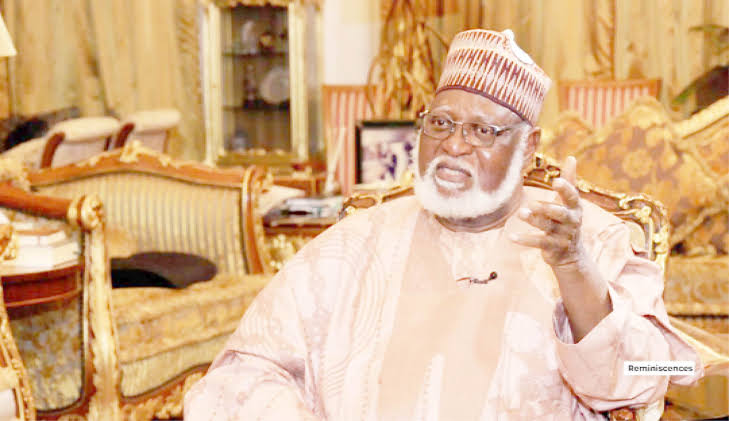Former Nigerian Head of State, General Abdulsalami Abubakar, has expressed deep concern over the growing economic hardship in the country, stating that the situation is rapidly escalating and that current relief efforts are insufficient. He emphasized that merely distributing palliatives is not a sustainable solution to alleviate the suffering of Nigerians, calling instead for long-term strategies to address the nation’s economic challenges.
Abubakar made these remarks at his residence in Minna while hosting members of the Campaign for Democracy and Human Rights, led by Comrade Abdullahi Mohammed Jabi. He pointed out that the severity of the economic crisis has left many Nigerians struggling to meet basic needs, particularly when it comes to feeding their families.
“The hardship in the land is getting out of control. Everybody is crying about this hardship, and it seems to be overwhelming. People cannot afford three square meals. The rising costs of transportation, the fuel price hike, increased school fees, and a general lack of money in people’s pockets are making life unbearable for everyone,” Abubakar lamented.
He criticized the government’s current reliance on palliative measures, such as distributing cash or relief materials to vulnerable citizens, arguing that these efforts, while well-intentioned, offer only temporary relief and fail to address the root causes of the economic crisis. “Giving palliatives is not the answer to the high prices of food and other essentials in the country,” he said.
As a more sustainable solution, the former head of state suggested that the government should take proactive steps to stabilize food prices. “There is a need for the government to flood the market with food,” Abubakar advised. “Let the government buy food and sell it at lower prices so that people can afford to buy based on their income levels.”
He further revealed that the forum he is part of had submitted proposals to the federal government, outlining recommendations for tackling the deepening economic challenges. However, he did not disclose details of the platform or the specific recommendations made.
Abubakar’s comments reflect the growing frustration among many Nigerians over the state of the economy, as inflation, fuel price hikes, and other financial pressures continue to erode household incomes, with many calling for more effective and sustainable interventions from the government.
